How Harris and Trump will try to win the debate
The former president and current Vice President have never met before. Their paths will finally collide in their first debate on Wednesday, and it could go a long way to deciding the election.
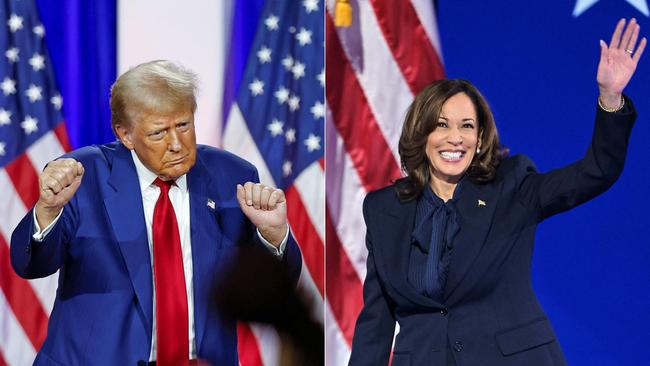
Vice President Kamala Harris and former President Donald Trump have never crossed paths in person. But they are about to collide on the debate stage.
The two candidates will clash Tuesday evening in Philadelphia at the National Constitution Center, creating the campaign’s biggest moment since Harris replaced President Biden as the Democratic nominee when he ended his re-election bid only seven weeks ago. The debate is expected to draw tens of millions of television viewers, and it comes as ballots have gone out in some battleground states and polls show the two rivals engaged in a tight contest -- including in Pennsylvania.
For Harris, the event offers the opportunity to make the case for her economic agenda, introduce herself to voters who still have a vague impression of her and reassure Americans that she is ready to serve as commander in chief. She has been blunt when describing her expectations for her face-to-face with Trump, whose brash approach to debating often rattled his prior election rivals.
“There’s no floor for him in terms of how low he will go. And we should be prepared for that,” Harris said in an interview with “The Rickey Smiley Morning Show” that aired Monday. “We should be prepared for the fact that he is not burdened by telling the truth. And we should be prepared for the fact that he is probably going to speak a lot of untruths.” A top objective for Trump, aides say, is to keep the debate focused on high inflation during Biden’s presidency and anxieties over the U.S.-Mexico border, pinning Harris to the current president’s policies. Trump also plans to dig into Harris’s record as a prosecutor in California, describing her as weak on violent crime and remind voters of her shifts from more liberal stances, saying in a recent CNN interview “my values have not changed.” Trump is unlikely to benefit from a rerun along the likes of Biden’s disastrous performance in June; Harris will be unburdened by concerns about her age and mental fitness for the job. But he has signaled plans to take a similar approach: His plan is to minimize interrupting Harris and allow her to talk, as he largely did with Biden and in contrast to his debate performances in 2016 and 2020. He also will need to avoid commenting on Harris’s gender, intelligence and race, strategists say. Earlier this summer, Trump said Harris only recently “became a Black person,” comments that could pose a risk if they are repeated on the debate stage.
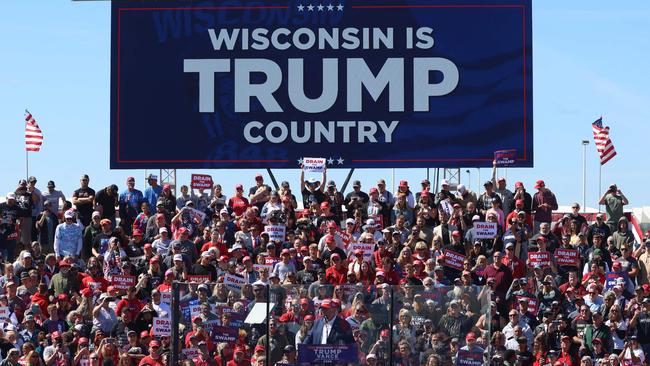
“He has to keep this focused on policy and not personality,” said Brett O’Donnell, a Republican strategist who helped prepare Mitt Romney and John McCain for debates during their presidential runs. “As he’s said, people may not like him but they should vote for him because he’ll make their lives better. He should write the following words at the top of his notepad: weak, failed, dangerously liberal. There shouldn’t be anything about her intelligence or race. He’s got to make the election about the status quo.” As he did earlier this year against Biden, Trump is avoiding traditional debate preparation. His campaign says he prepares by talking to voters during rallies and doing interviews.
“You can go in with all the strategy you want, but you have to sort of feel it out as the debate’s taking place,” Trump told Sean Hannity during a Fox News town hall last week. Quoting boxer Mike Tyson he added, “Everybody has a plan until they get punched in the face.” Still, Trump has also been holding policy sessions with advisers, which have recently included former Democratic Rep. Tulsi Gabbard, who memorably tangled with Harris in a 2020 Democratic presidential primary debate; Republican Rep. Matt Gaetz of Florida; immigration adviser Stephen Miller; and strategist Jason Miller.
“You can’t talk about turning the page when you’re the one who created the current nightmare,” Jason Miller told reporters ahead of the debate, describing a range of attacks from the economy to the botched withdrawal from Afghanistan.
Harris, meanwhile, has laid the foundation in advertising and public speeches to address issues such as her economic plan and support for abortion rights. Her campaign unsuccessfully lobbied ABC to have live microphones in front of the candidates throughout the debate, arguing against carrying over rules established in Biden and Trump’s CNN debate to have microphones muted when the other candidate is speaking. The Harris campaign had sought to keep the microphones open to allow for a more active back-and-forth.
ABC has said the pre-existing microphone rules will remain in place. A Harris campaign aide said their effort to unmute the microphones reflected a “deeply held belief” of the vice president’s because of her prosecutorial style of debating. But it also likely reflects a desire for Trump to talk over her.
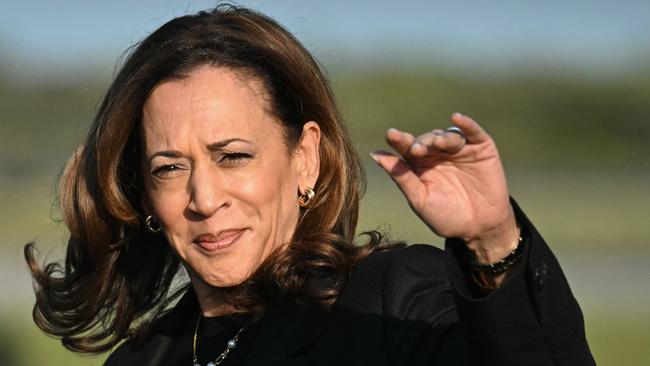
Beyond the skirmish over debate rules, Democrats who have worked on past presidential debate preparations said she needs to avoid debating Trump on his terms.
“She’s got to, at all costs, avoid taking the bait and trying to deal directly with the craziness that is Trump,” said Robert Barnett, a Washington attorney who has helped prepare Democratic presidential candidates for debates for decades. “The way that she has been doing it, is either, ‘next question,’ or ‘that’s the same old stuff,’ and not getting into the muck, briar patch with him.” Trump and Harris have never met in person despite overlapping in Washington. Harris served in the Senate representing California during Trump’s four-year term in the White House and attended his State of the Union and joint addresses to Congress but they have largely opposed each other from afar. Trump didn’t attend the 2021 inauguration.
Both are experienced debaters. Earlier in her career, Harris, a former prosecutor, was helped by her opponent’s miscue in a debate for California attorney general. Later, as a first-time presidential candidate, Harris made a splash in her first 2020 presidential primary debate in June 2019, when she hammered Biden over his 1970s era position on school integration and busing.
But she struggled to articulate a clear message in that campaign and dropped out before the first contests in Iowa and New Hampshire. Tuesday night’s debate will be Harris’s first since 2020, when she faced then-Vice President Mike Pence in a showdown heavily focused on the Covid-19 pandemic.
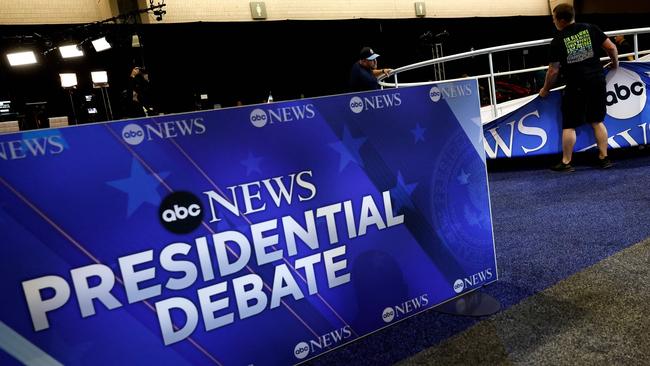
In that debate, Harris backed up her assertions with statistics, and frequently looked directly into the camera as she spoke. She also refused to back down as Pence sought to speak over her at times, saying, “Mr. Vice President, I’m speaking.” Harris has been holding mock debates in Pittsburgh, where the sessions have been led by Karen Dunn, a Washington attorney who has organized debate preparation for Democratic candidates since 2008, and Rohini Kosoglu, a longtime Harris adviser. Philippe Reines, a former aide to Hillary Clinton, has been playing the role of Trump in mock debates.
Trump has more nationally-televised debate experience, plowing through a large field of Republicans to seize the party’s nomination in 2016, when he was helped by debate performances watched by tens of millions of Americans.
Later that year, his three debates with Clinton showed the challenge Democrats have faced in challenging his record and conduct -- along with his ability to deliver memorable lines, even ones some voters can find distasteful. Trump’s first debate against Biden in 2020 was marked by testy moments of hectoring and constant interruptions. The second debate was a more measured affair.
In June, Trump’s generally disciplined debate performance as Biden struggled to offer a coherent defense of his administration set the stage for Harris’s rise.
But leading up to his debate with Harris, the former president has often been distracted while fanning controversies and escalating his rhetoric. In a social-media post Saturday he repeated his false claims of widespread cheating in the 2020 election and threatened to jail anyone, from campaign lawyers, operatives, donors and voters, involved in “unscrupulous behavior.” A day earlier he held a news conference in New York, without taking questions, to assail women who have accused him of misconduct.
WSJ

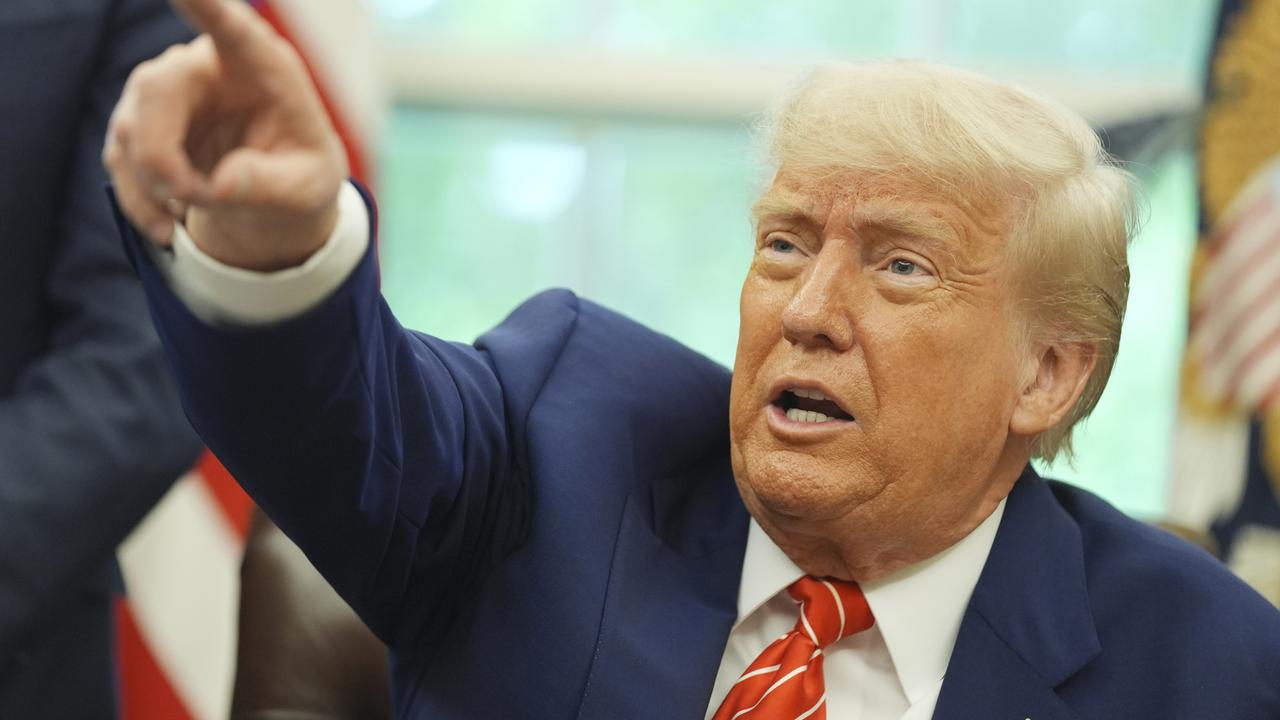

To join the conversation, please log in. Don't have an account? Register
Join the conversation, you are commenting as Logout